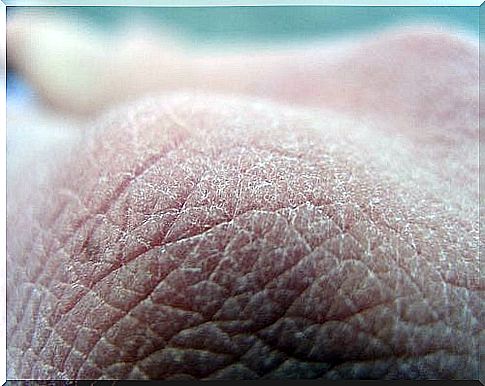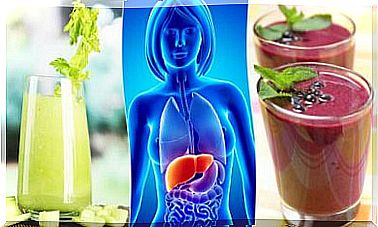Vitamin C: 8 Symptoms That Indicate Its Deficiency

Everyone knows that vitamins play a fundamental role in the health and proper functioning of the body. Among these, vitamin C is perhaps the best known and most important.
Not only because it is essential for strengthening the immune system, but also because it plays a central role in many processes in our body.
Regular consumption of vitamin C has been shown to improve circulation, promote cell growth and reduce the negative effects of oxidative damage.
Furthermore, this nutrient is necessary for the correct absorption of iron and the use of calcium, which allows to obtain other important benefits.
As a result of all these reasons, a lack of vitamin C in the body can trigger a series of negative reactions that directly harm physical and mental health.
Although it is difficult to notice at first, with the passage of time some symptoms appear that make this deficiency evident. Find out in this article!
Symptoms of Vitamin C Deficiency
1. Weakness and hair loss

The problem of weak and falling out hair is associated with many factors that can deteriorate both the scalp and the hair itself.
Among these factors, the lack of vitamin C in the body is a very common cause, since it is a fundamental nutrient for preserving the collagen and proteins that give strength to the hair.
A diet low in foods that contain vitamin C can cause dryness, hair loss, and a propensity for dandruff.
2. Recurrent infections
Those with a lack of vitamin C tend to develop more infections than those who, on the other hand, take the right amount.
This nutrient is essential for the body’s defense mechanisms and, therefore, low levels of vitamin C reduce the body’s ability to destroy pathogens that can trigger any disease.
Frequent urinary tract infections, oral problems and skin allergies are symptoms that indicate the need to increase the consumption of this nutrient.
3. Mood swings

While most of us ignore this fact, vitamin C is closely linked with our emotional health.
The right levels of this vitamin help promote mental balance, peace of mind and the control of hormones that cause bad mood.
A deficiency of this nutrient in the body can be the cause of an irritable mood, stress and other negative emotions that affect our health.
4. Fatigue
Fatigue or a continuous feeling of tiredness is a symptom that occurs as a result of multiple causes and health problems.
Lack of vitamin C is no exception, as this nutrient is necessary for optimal physical and mental performance.
Not taking the recommended amount, it prevents us from resting well and makes us feel tired for longer.
5. Wounds that heal with difficulty

Since this nutrient is necessary for proper oxygenation and cell repair, a deficiency in the body prevents wounds from healing quickly.
It is then normal for superficial lesions to take longer to heal and for bruises to appear suddenly.
6. Body pains
Continuous body aches need to be investigated by a specialist, as they can have many different causes.
Among these, nutritional deficiencies are very common, especially since they directly affect muscle and joint health.
A lack of vitamin C, for example, makes it harder to absorb some minerals properly, which implies a weakening of the muscles.
Furthermore, it prevents the proper synthesis of collagen and causes a weakening of the cartilage that protects the joints.
7. Dry skin

Taking Vitamin C every day is one of the best habits you can adopt to have soft, beautiful and healthy skin.
This nutrient, in fact, prevents the premature loss of collagen and elastin, two substances that keep the skin firm and elastic.
Regular consumption of vitamin C reduces the negative effects of free radicals, promotes the elimination of toxins and reduces the risk of premature aging.
As if all this were not enough, it is also essential for proper skin hydration, as it facilitates the absorption of nutrients and liquids.
8. Cardiovascular diseases
The early development of some cardiovascular diseases may have a close link with a lack of vitamin C in one’s diet.
Although these diseases depend on many different factors, low levels of vitamin C promote their development.
Its antioxidant action, in fact, reduces the accumulation of cholesterol, promotes blood cleansing and stimulates the elimination of toxins.
It is also a fundamental nutrient for improving the connective tissue of the organs, as it promotes the functions of cells, veins and arteries.
Do you think you suffer from a vitamin C deficiency? Find out about natural sources that contain this nutrient and try to improve your eating habits to take the recommended amount every day.








